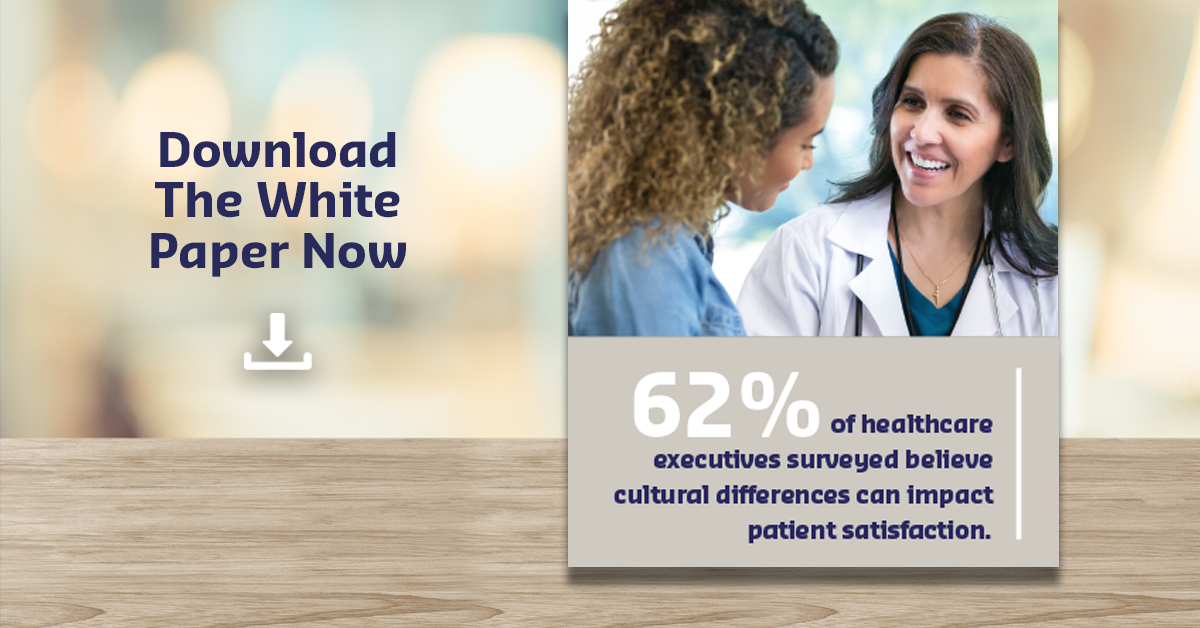Are Hospitals Prepared for the Changing Demographics of Patients? New Sodexo Report Highlights Industry Challenges and Offers a 5-part Action Plan for Advancing Hispanic Leadership in Healthcare
The Healthcare Administrators: The 2043 Imperative. Advocating for Hispanic Leadership in Healthcare and Cultural Competence white paper indicates that closing representative population gap is critical for achieving greater patient satisfaction and improv
GAITHERSBURG, Md., September 25, 2019 /3BL Media/– Numerous challenges lie ahead for healthcare leaders over the next decade. CEOs and healthcare administrators will wrestle with healthcare costs, regulatory issues, medicinal/technological advancements and ethics.
However, there is another challenge that is increasingly demanding their attention… and it’s poised to be a game changer. It’s the need for advancing Hispanic leadership in healthcare.
To help shed more light on this topic during National Hispanic Heritage Month, Sodexo has released a new white paper titled Healthcare Administrators: The 2043 Imperative. Advocating for Hispanic Leadership in Healthcare and Cultural Competence.
Drawing on primary and secondary research, surveys, and in-depth interviews, the white paper focuses on industry challenges and insights including some revealing data:
- By 2043 the majority population in the United States will be comprised of racial and ethnic minorities according to U.S. Census Bureau projections.
- Currently representing 17.6 percent of the U.S. population, the Census Bureau projects that Hispanics will continue to account for more than 50 percent of U.S. population growth.
- Hispanic leadership in the healthcare industry and on hospital boards currently do not proportionately reflect the size of patient populations; Research indicates that closing this gap is critical for achieving greater patient satisfaction and improved clinical outcomes.
Catherine J. Tabaka, CEO Sodexo Healthcare – North America, shared: “Organizations perform at their highest level when their culture values and promotes diversity of thought, and their teams reflects the diverse base of clients they serve. It’s simply the right thing to do for the business and for the teams.”
The white paper includes a survey of healthcare executives which reveals that 62 percent believe cultural differences can impact patient satisfaction, 46 percent believe that diverse leadership improves clinical outcomes and more than half, 57 percent, attribute successful decision-making to an in-depth understanding of cultural differences among patients.
So how can the dynamics and trends impacting the industry now and in the future be addressed? According the white paper Healthcare administrators can adopt a five-part action plan to help advance Hispanic leadership in healthcare:
- Actively Foster Engagement & Self-Expression
- Develop & Model Executive Presence
- Facilitate Professional Sponsorships
- Commit to Ongoing Collaboration with Human Resources & Talent Acquisition
- Institute Governance & Accountability
Dr. Ela Rios, president & CEO of the National Hispanic Medical Association, a supporting organization of the white paper explains, “Healthcare will need more leaders who are able to make decisions based on cultural context. Cultural competence is about patient-centered care and team work.”
“The continued transformation of our industry relies on a diverse and inclusive talent pipeline that reflects our community and patient populations,” says Rolando Gomez, president and chair, National Association of Latino Healthcare Executives. “That means advocating for Latino and Hispanic healthcare leadership to drive enhanced cultural competencies and better clinical outcomes.”
Healthcare administrators have an opportunity to guide the process by using idea starters from the five-part action plan described in the white paper and by seeking out counsel and strategy around best practices for advancing Hispanic leadership in the healthcare industry.
Glenn Llopis, president and CEO of GLLG – owner of HealthyHispanicLiving.com (HHL), which is advancing significant work to address the holistic approach to health needs for the Hispanic community, provides personal insight: “All employers are in the business of health and they have tremendous influence to impact the health of individuals, communities and society as a whole, especially given the strategic implications of the cultural demographic shift that require the healthcare system to serve the unique needs of all patient populations in today’s age of personalization.”
Learn more by visiting: https://us.sodexo.com/industry/healthcare.html
XXX
About Sodexo North America
Sodexo North America is part of a global, Fortune 500 company with a presence in 72 countries. Sodexo is a leading provider of integrated food, facilities management and other services that enhance organizational performance, contribute to local communities and improve quality of life for millions of customers in corporate, education, healthcare, senior living, sports and leisure, government and other environments daily. The company employs 160,000 people at 13,000 sites in all 50 U.S. states and Canada, and indirectly supports tens of thousands of additional jobs through its annual purchases of $19 billion in goods and services from small to large businesses. Sodexo is committed to supporting diversity and inclusion and safety, while upholding the highest standards of corporate responsibility and ethical business conduct. In support of local communities across the U.S., in 2018, Sodexo contributed over 159,500 in volunteer hours, and since 1996, the Stop Hunger Foundation has contributed nearly $34.5 million to help feed children in America impacted by hunger. To learn more about Sodexo, visit us.sodexo.com, and connect with us on Facebook, Instagram, LinkedIn, Twitter and YouTube.





